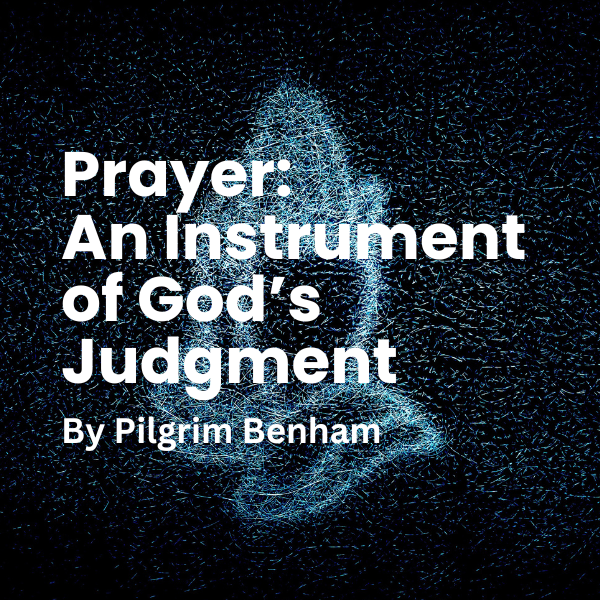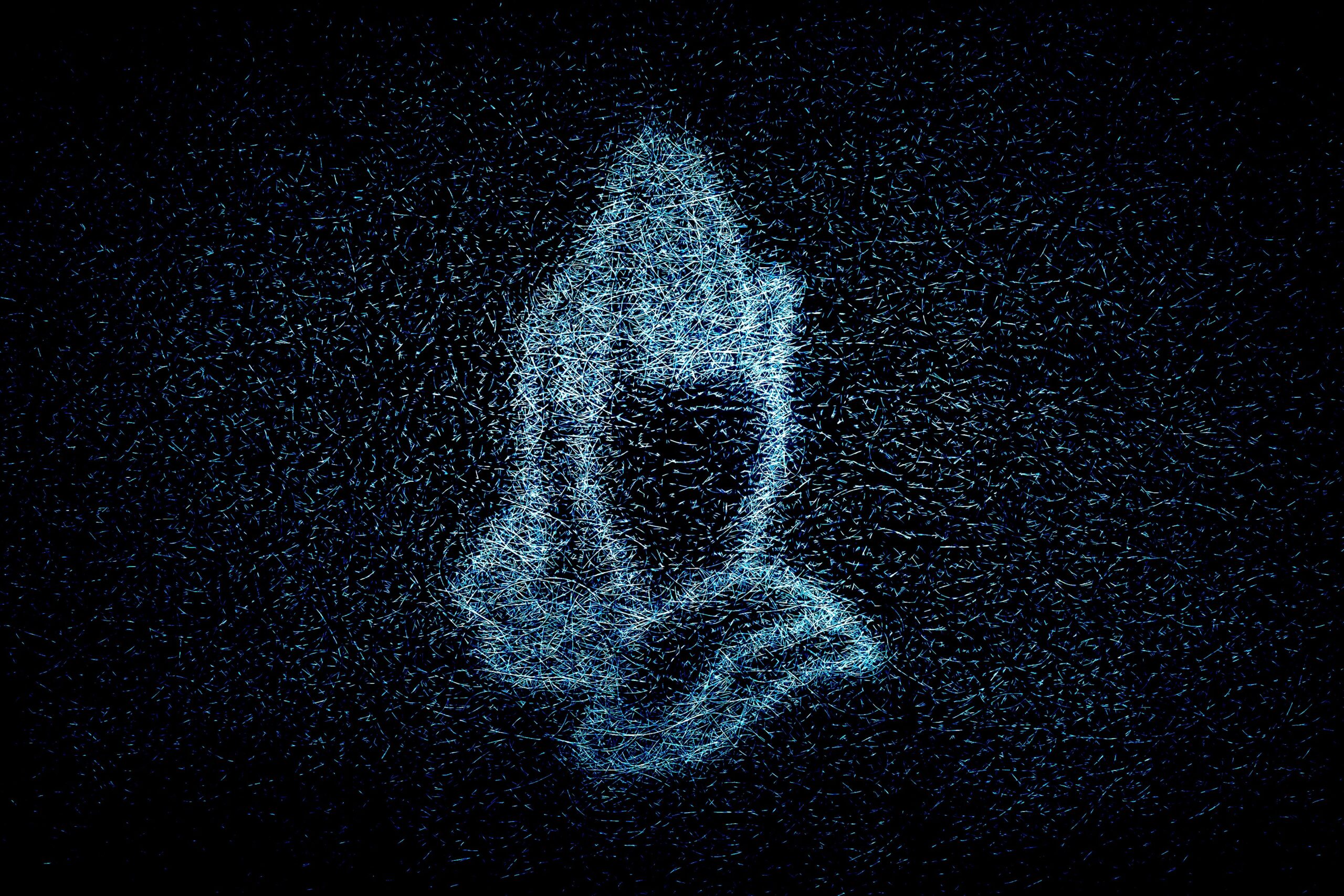
For some Christians, prayer is nothing more than a monologue: just an opportunity to talk to God, listing out all of our needs like a husband receiving a text from his wife with all of her grocery store reminders.
For other believers, prayer is more like a quick spiritual push-up, relegated to ten seconds three times a day before a meal; just a passing thought first thing in the morning, or an obligatory check mark right before one goes to bed at night.
Some see prayer as a lifeline, or as a last resort. Think of the prayers you have prayed in your life …some have certainly been deep and raw:
God, please save my son — he’s so far from you. Bring him back, Lord.
Lord, give us wisdom — we don’t know how to handle this diagnosis.
Father, we don’t understand this pain, this loss. Help us to trust You.
Many of our prayers, like those in the Psalms, have exclamation points: they are intense, short, and desperate! My wife Jenn and I just watched a series where people in the middle of tornadoes or hurricanes capture the footage on camera in real time. One thing that struck both of us was how many people around the country in completely different cities and towns would all begin calling on the name of Jesus in these terrifying moments.
However, often some of the prayers we prayed have been selfish, and silly: “Lord, bless this Cinnabon for the nourishment of my body …”
Psalm 141:2 says: “Let my prayer be set before You as incense, The lifting up of my hands as the evening sacrifice.”
David was asking that his prayer be like the incense in the Holy Place: always burning, always ascending, always acceptable. In the Holy Place of the tabernacle, there was a piece of furniture known as “the altar of incense.” Exodus 30 describes this as just before the veil that separated the Holy Place from the Most Holy Place (also known as the “Holy of Holies”).
This piece of furniture is not where sacrifices were made (that was the bronze altar out in the courtyard), but for a continual burning of incense. On the Day of Atonement (Leviticus 16:12-13), incense was required to precede the high priest into the Holy of Holies so the smoke would cover the mercy seat, shielding him from God’s glory and wrath.
The incense, which included frankincense and other ingredients, had to be gathered from distant lands, often requiring caravans traveling perilous trade routes. Each component was processed meticulously, being dried, ground, and blended with precision to meet God’s exact specifications. Since it was so hard to get, and used exclusively by the priests, this meant incense was incredibly costly.
Only the correct kind of incense could be used (just ask Nadab and Abihu, who in Leviticus 10 brought unauthorized fire which led to their deaths). Occasionally, blood from sin offerings was placed on the horns of this incense altar (Exodus 30:10) to cleanse and consecrate it. But, do not miss this: the incense offered here was not to cover sin; it was supposed to be burning perpetually, smoke rising upward, as a symbol of our prayers going up to heaven and being received by God.
The priest would begin with the bronze altar, fill a golden censer with incense, and place burning coals from the courtyard altar in a golden bowl to ensure the incense kept burning. Luke chapter 1, (remember?) describes Zechariah as the priest who was performing this exact duty when the angel Gabriel appeared to him on the right side of the altar of incense, and revealed that his wife Elizabeth would be pregnant with John the Baptizer, who would be the forerunner to the Messiah, Jesus Christ.
The altar of incense bridged sacrifice with supplication. God was illustrating in this prescription of worship that his people’s prayers were made acceptable because of atonement. Revelation 5:8 says, “Now when He had taken the scroll, the four living creatures and the twenty-four elders fell down before the Lamb, each having a harp, and golden bowls full of incense, which are the prayers of the saints.”
Revelation 8:3-4 says, “Then another angel, having a golden censer, came and stood at the altar. He was given much incense, that he should offer it with the prayers of all the saints upon the golden altar which was before the throne. And the smoke of the incense, with the prayers of the saints, ascended before God from the angel’s hand.”
These prayers are the prayers of all believers, throughout all time. When the Bible uses the word “saints,” it is not referring to a special class of super-Christians, like the ones the Catholic church venerates. It is definitely not referring to that sub-par NFL team in the NFC South. (Do not @ me — it’s true. #gobucs). When the New Testament says “saints,” it is always used in a collective, plural sense, referring to all believers who are in Christ. Whether you feel like a saint or not, the truth is, you are sanctified by the work of Jesus Christ on your behalf. The Scripture calls believers “saints.”
Consider that for just a moment, Christian. Not just the prayers of the elite. Not just the prayers of the elders, the angels, the a-list apostles or the martyrs who died for their faith. These bowls of incense are filled not just with the prayers of Billy Graham, Martin Luther, Chuck Smith, or your sweet godly grandmother.
Every single prayer. Every whispered prayer of a frightened child in the dark. Every groaned prayer of a mother at a hospital bed. The war-torn prayers of believers in persecuted lands. The desperate, “Help me, Lord” from a recovering addict. The broken confession from a man who just failed again. The pleading of the elderly widow alone in her living room. The fumbling prayer of a brand-new believer who barely knows what to say. Even a simple, sincere “thanks” whispered over a meal. These ascend collectively toward God’s throne, meaning they are accepted.
Now, notice what then happens with these prayers? Revelation 5-6: “Then the angel took the censer, filled it with fire from the altar, and threw it to the earth. And there were noises, thunderings, lightnings, and an earthquake. So the seven angels who had the seven trumpets prepared themselves to sound.”
In the Old Testament, you used trumpets to sound the alarm for war, which would often throw Israel’s enemies into a panic. This is the battle cry during a time of great tribulation, and the angels lift the trumpets in preparation to sound the alert. Earth is literally impacted, moved, by the censer and fire that has just been hurled at it by the angel. What other than fire was in that censer? The prayers of the saints!
Do not miss this: our prayers are not merely incense, but instruments of God’s ways. The incense rising and the censer descending at the earth are not two separate things. Prayer is not merely communion, it is also commission. God’s judgment will not just fall arbitrarily; it comes as a response to the cries of his people.
You may be thinking of these words from Exodus 2:23-25: “Now it happened in the process of time that the king of Egypt died. Then the children of Israel groaned because of the bondage, and they cried out; and their cry came up to God because of the bondage. So God heard their groaning, and God remembered His covenant with Abraham, with Isaac, and with Jacob.”
Their groaning and their cries for help were prayer! Does this not sound like Revelation 6:9-10?“When He opened the fifth seal, I saw under the altar the souls of those who had been slain for the word of God and for the testimony which they held. And they cried with a loud voice, saying, “How long, O Lord, holy and true, until You judge and avenge our blood on those who dwell on the earth?”
These prayers, offered throughout history, culminate in God’s final judgment during the tribulation, showing their eternal significance. This teaches me that when God’s people pray, God answers. There are cosmic consequences! Jesus taught us to pray “your kingdom come, your will be done on earth as it is in heaven.” Jesus was not teaching us what to pray, as if we are to repeat this prayer verbatim (sadly we chose the latter). Jesus was not teaching us what to pray; he was teaching us how to pray. When we pray, we seek first his kingdom and his righteousness, aligning our desires with his desires.
When we pray for his will to be done on earth, God acts. He “remembers.” You see this phrase throughout the Old Testament: “God remembered Noah,” “God remembered Abraham,” “God remembered Rachel” — it was not that God forgot them. It meant theologically that he was now actively moving on their behalf. This was a signal of his divine, faithful love in motion after a time of perceived inaction.
However, approaching a holy God is only possible because of the finished work of Jesus Christ. Hebrews 7:25 says, “Consequently, he is able to save to the uttermost those who draw near to God through him, since he always lives to make intercession for them.” That idea of “always” reminds us of the perpetual incense offered before God. Not only does God hear our prayers, but his Son is praying for us as well!
Jesus, the perfect Son of the Father, died on the cross for our sins and graciously exchanged our sin for his righteousness. Jesus, the perfect Son, was cast out, so that sinners like you and me could be welcomed in. At the cross, the Father turned his face away from Jesus in wrath, but turned his face toward us in mercy. Our great High Priest did not slaughter an animal sacrifice to cover sin, but offered his own life at Calvary to forever erase the stain of sin, cleanse us from unrighteousness, and make us holy. When Jesus died, the veil in the temple was not torn from bottom to top (as if man initiated this entrance), but from top to bottom, signifying that access was now available and initiated by God through the finished work of Christ.
The altar of incense in the tabernacle was only acceptable and ignited because of atonement, and through Christ Jesus, the one Mediator between God and man, our prayers are received, heard, and answered.
One day, all of the collective, watchful groanings and petitions of God’s people throughout all time, from Adam to the last martyr, will rise up like smoke to the King who lives forever, and be hurled back to the earth in justice. Until then, may we bow our hearts, may we bend our knees, may we ask, seek, and knock, for everyone who asks receives, and he who seeks finds, and to him who knocks, the door will be opened.







